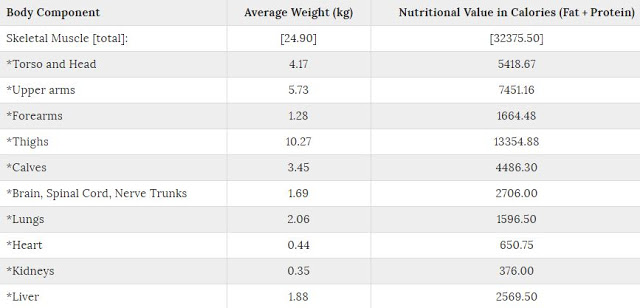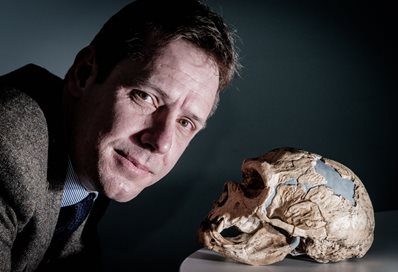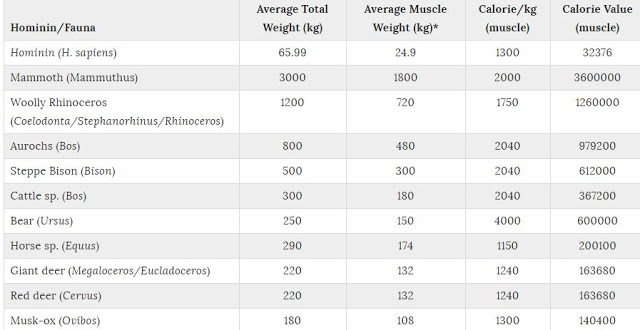

| Online: | |
| Visits: | |
| Stories: |

| Story Views | |
| Now: | |
| Last Hour: | |
| Last 24 Hours: | |
| Total: | |
Why Our Ancestors Turned to Cannibalism: Calorific Values for Parts of the Human Body.
“In modern humans, cannibalism has been related to any combination of the following: survival, psychotic or criminal, aggressive, spiritual or ritual, gastronomic or dietary, and medicinal.
“Cannibalism is not, however, purely a characteristic of modern humans and has been practiced by a range of hominin species from at least one million years ago.”
Dr Cole, an expert in human origins and Senior Lecturer in Archaeology at the university, assessed the calorie value of the human body: A 65kg or 10 stone human has approximately 32,000 calories in their muscle tissue compared to 163,000 calories in the muscle tissue of a deer and an estimated 3.6 million calories for the muscle tissue of a mammoth.
The results question the idea that our ancestors hunted and consumed members of their own species for strictly nutritional reasons given the much greater calorie return from the faunal species we know were commonly consumed in the past.
Credit: University of Brighton
It is possible that some of our ancestors may have eaten members of their own species out of convenience – victims who died from natural causes were a ready source of food and did not need to be hunted.
But Dr Cole, whose research is published by Scientific Reports, said: “We know that modern humans have a range of complex motivations for cannibalism that extend from ritual, aggressive, and survival to dietary reasons. Why then would a species such as the Neanderthals, who seem to have had varying attitudes to the burial and treatment of their dead, not have an equally complex attitude towards cannibalism?”
Dr Cole hopes his research will form part of a holistic approach to the definition of prehistoric cannibalism, with a stricter use of terminology when describing cannibal episodes beyond the “ambiguous and leading terms ‘nutritional’ or ‘symbolic’
Citation: Cole, J. Assessing the calorific significance of episodes for human cannibalism in the Palaeolithic. Sci. Rep. 7, 44707; doi: 10.1038/srep44707 (2017).
Source: http://www.ineffableisland.com/2017/04/why-our-ancestors-turned-to-cannibalism.html





